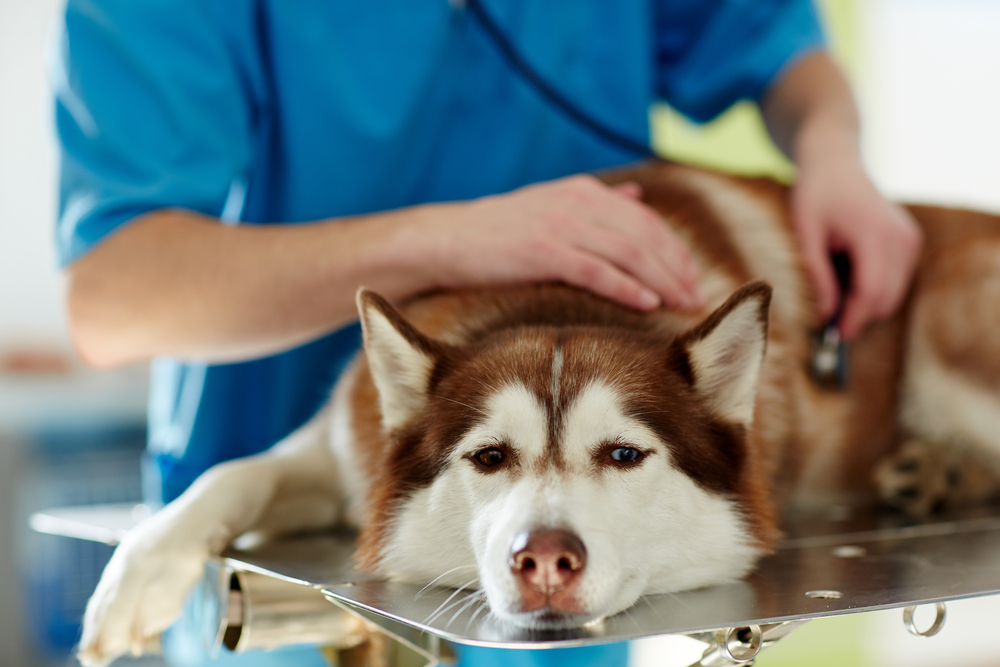Our dogs are cherished members of our families, and it can be distressing when they end their time with us. You may need to know when it’s time to say goodbye to your furry friend, and it’s not always clear when that time is present. Let’s look at some of the changes your dog might face before they pass away.
How Do I Know If My Dog Is Dying?
Our dogs can have many different diseases, and they manifest in various ways. Let’s look at some signs your dog might exhibit as they die. Keep in mind that very sick dogs may still show these signs.
Regardless, you need to work with your vet to evaluate your dog and help determine when or if you need to say goodbye.
1. Physical Changes
As our pets weaken and their organs shut down, we’ll often see physical changes in their appearance. Your dog’s normally lustrous coat might become dull. Sometimes, your dog’s skin will become greasy, leading to packed or matted hair.
You might notice an odor emanating from your dog. This smell change can be attributed to different things:
- Skin infections
- Periodontal disease
- Metabolic diseases
Your dog might have new lumps from cancer, and its lymph nodes might enlarge. The easiest lymph nodes to palpate are at the edge of the jaw, in front of the shoulders, and on the back of your dog’s thighs. Some dogs will also develop edema in their lower limbs. Ascites, or fluid accumulation in the belly, is also possible.

2. Gait Changes
As your dog ages, it often develops muscle atrophy, making the muscles thinner and, secondarily, weaker. It might also have neurologic changes that contribute to an abnormal gait. Your pup might be weak when walking, struggle to stand without help, or even trip over its feet.
3. Appetite Changes
Most dogs start to eat less towards the end of their lives. They may not be interested in food or have severe dental disease that prevents them from chewing hard kibble. You may find yourself changing what your dog eats: using canned food, adding toppers, or cooking something for your pup.
You might notice your dog losing weight. Sometimes, this can be attributed to your dog not eating as much. Some health conditions, such as cancer and kidney failure, can also contribute to weight loss.
4. GI Signs
Your elderly dog might have gastrointestinal signs, such as vomiting or diarrhea. You might see blood in their vomit or stool.

5. Incontinence
Dogs that are dying may lose control of their bladder and bowels, having accidents throughout the house or on their bedding. This could sometimes relate to an inability to hold their urine in. They might have cognitive changes and forget where to go.
6. Trouble Breathing
Dogs may develop trouble breathing at the end of their lives. Cardiac changes or anemia will decrease the ability of your dog’s red blood cells to carry oxygen throughout the body. Your elderly pup might be weaker or gasp for air.
7. Pain
Unfortunately, many dogs may be in pain towards the end of their life. Hospice and end-of-life care will often be geared towards controlling this pain. It could be from arthritis or cancer. Bone cancer, like osteosarcoma, can lead to very painful bone fractures.

8. Cognitive Differences
Cognitive changes are generally associated with your pet dying, but they can be associated with a decreased quality of life and should not be glossed over. If your dog is anxious or confused, or if either of you can’t sleep at night, you need to seek veterinary intervention.
9. Decreased Interactions With Family
As our dogs age and become weaker, tired, and more painful, they often withdraw from family interactions. Your dog that used to be begging for a treat at the table during dinner may now be slinking off to be quietly away from the family. These decreased interactions can be heartbreaking for families and can signal that your dog is nearing the end.
The HHHHHMM Quality of Life Scale for Dogs
The HHHHHMM Quality of Life scale uses several categories to evaluate your dog regularly to ensure they maintain a good quality of life.
- Hurt
- Hunger
- Hydration
- Hygiene
- Happiness
- Mobility
- More good days than bad days
The scale provides an objective measure to guide you and your veterinarian on treatments, their effectiveness for your dog, and when it may be time to say goodbye.

Conclusion
Your dog is a cherished family member, and it’s important to recognize when it might be nearing the end of its life. In addition to identifying these signs, it’s essential to work with your veterinarian to determine if particular issues signal that your dog is dying or could be treatable.
Featured Image Credit: Leka Sergeeva, Shutterstock











